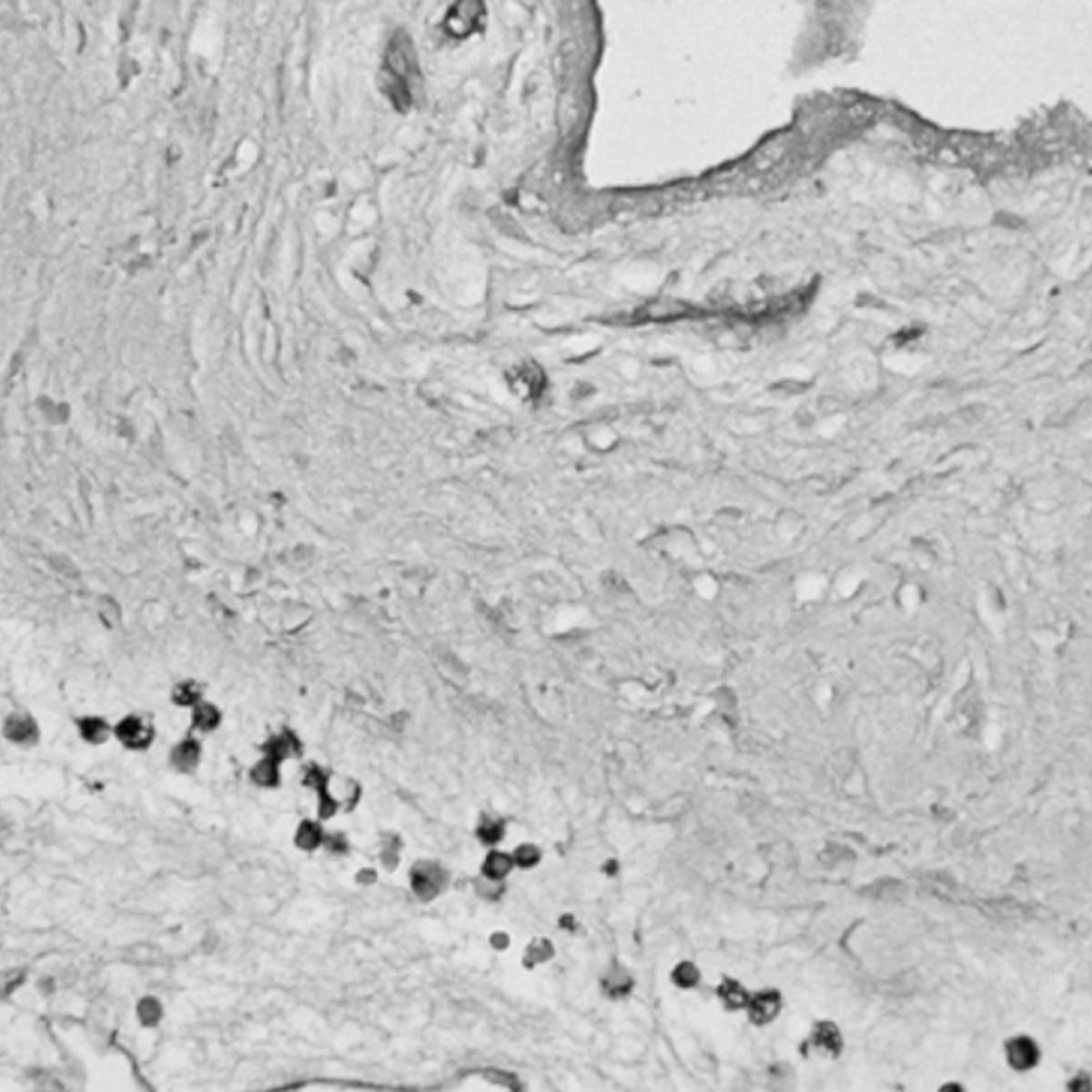Milestones
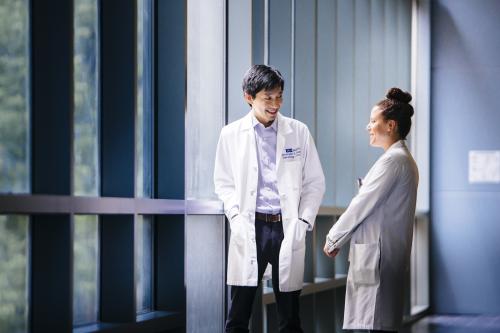
Many of the milestones on this page mark leaps forward in our understanding of stem cells and their potential applications to better human health. Additional highlights capture critical investments we've made in the interdisciplinary research, training and infrastructure necessary to realize these breakthroughs. Although hurdles remain, we're committed to turning laboratory discoveries into therapies and cures for patients suffering from the world’s most vexing diseases and conditions.
-
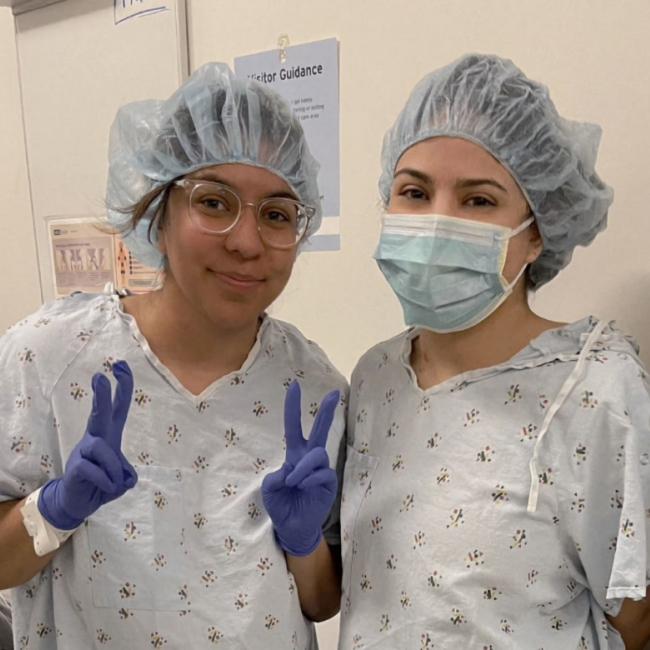 Nov2025
Nov2025Support from CIRM allows center scientists to expand a clinical trial of a stem cell-based therapy that helps kidney transplant recipients safely stop taking lifelong immunosuppressive drugs.
-
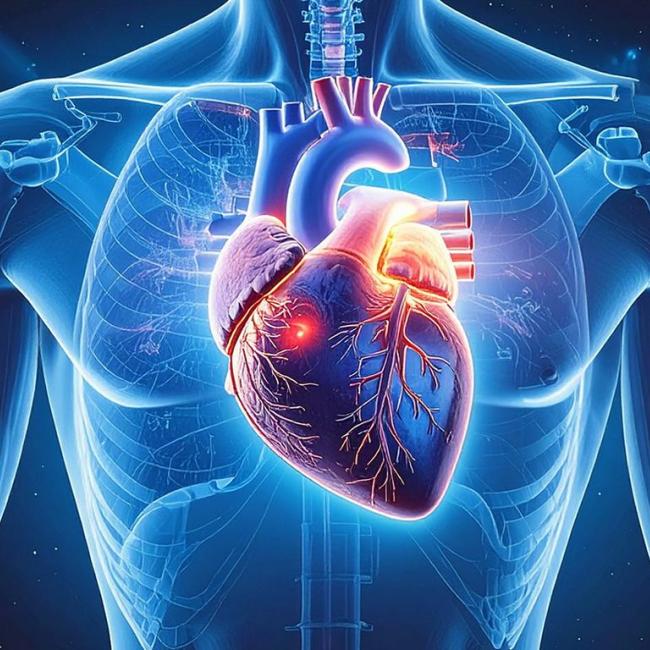 Oct2025
Oct2025Center scientists approved to begin clinical trials for a first-of-its-kind drug that promotes tissue repair in the heart and other organs.
-
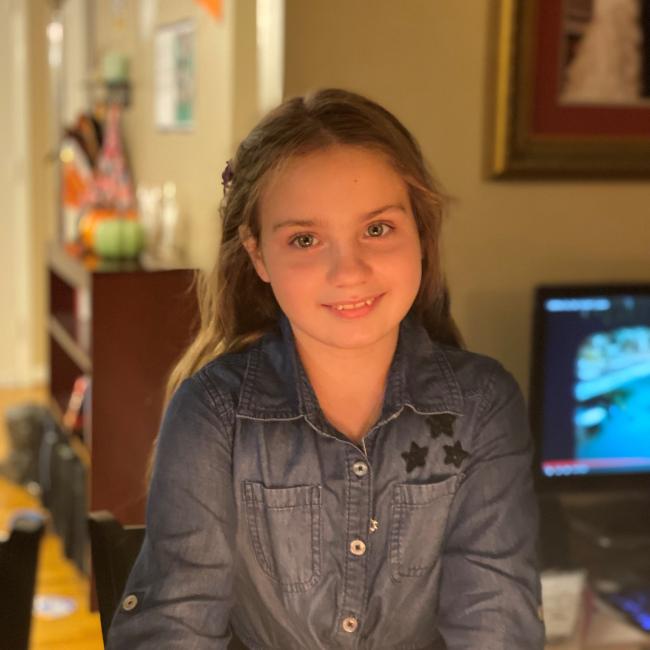 Oct2025
Oct2025A blood stem cell gene therapy co-developed by Dr. Donald Kohn has restored and maintained immune system function in 59 of 62 children born with ADA-SCID, a rare and deadly immune disorder.
-
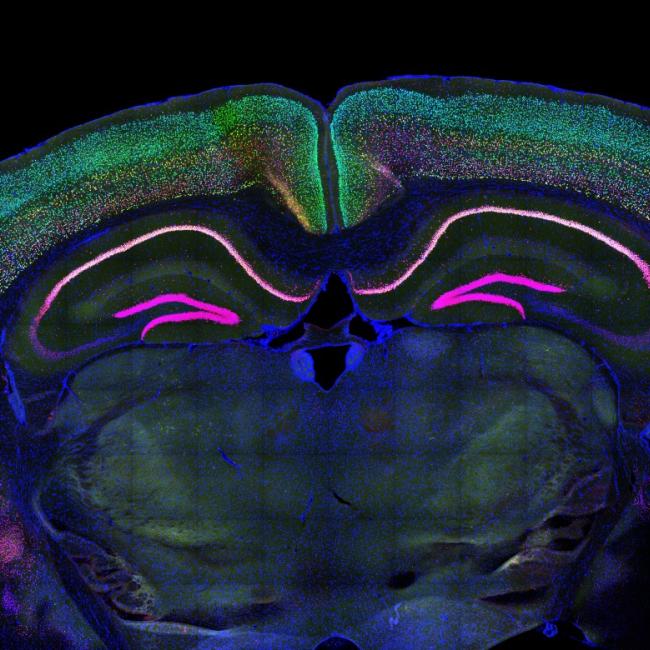 Jun2025
Jun2025UCLA researchers uncover how inflammation in brain blood vessels exacerbates damage in vascular dementia and demonstrate that targeting this process with a repurposed drug can promote brain repair and functional recovery in mice.
-
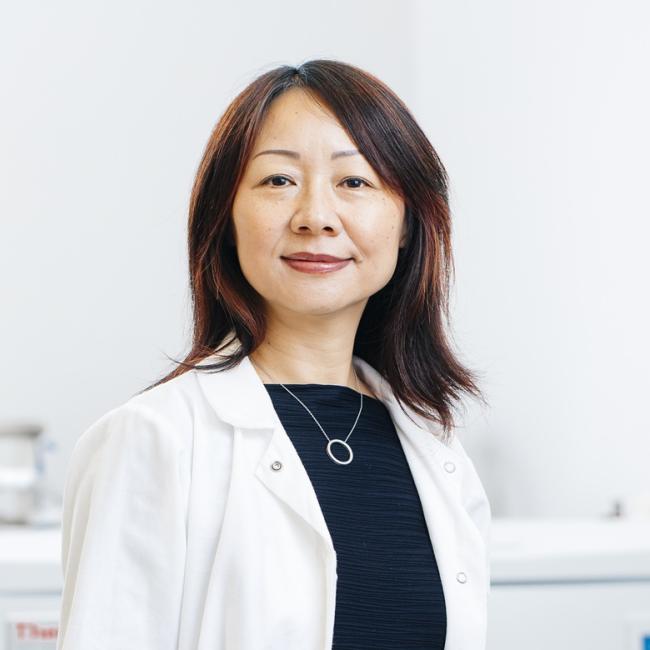 May2025
May2025Center researchers discover that a common antidepressant drug could help the immune system fight a range of cancers and suppress tumor growth.
-
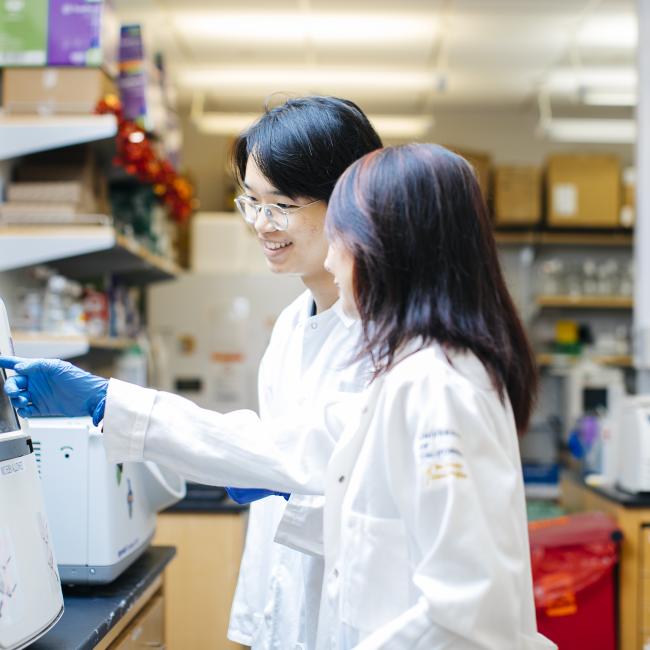 Mar2025
Mar2025Two decades after its founding, center staff and faculty celebrate 20 years of transformative stem cell research and impact with the launch of a digital impact report.
-
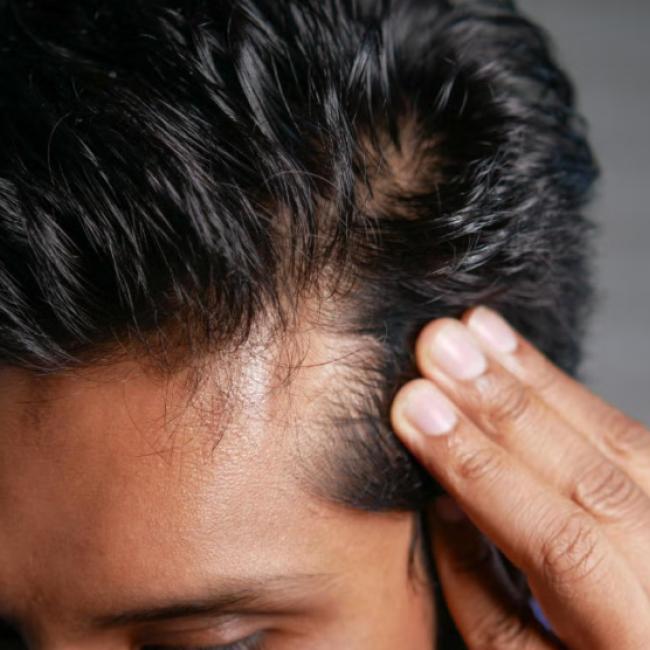 Feb2025
Feb2025Center scientists discover a molecule that reactivates stem cells in hair follicles to regrow hair naturally. Applied topically, it could be the first stem cell-targeted therapy for baldness.
-
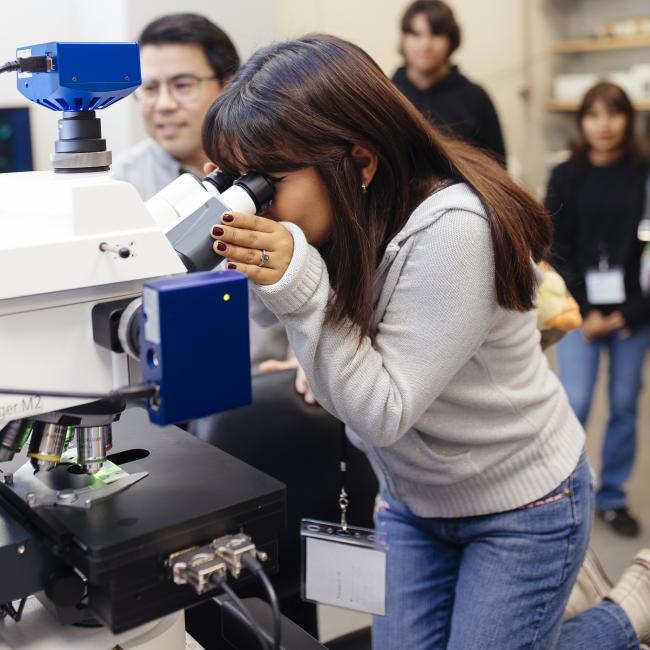 Nov2024
Nov2024The center welcomes 100 high school students for lab tours, hands-on science activities and an interactive panel discussion in conjunction with Stem Cell Awareness Day.
-
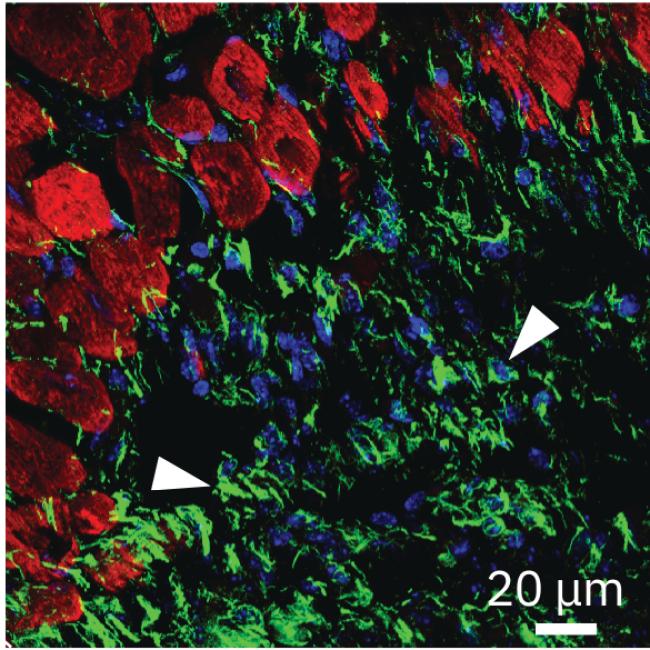 Oct2024
Oct2024UCLA researchers engineer an experimental therapy that reduces scar tissue formation and improves cardiac function after a heart attack with just a single dose in mice.
-
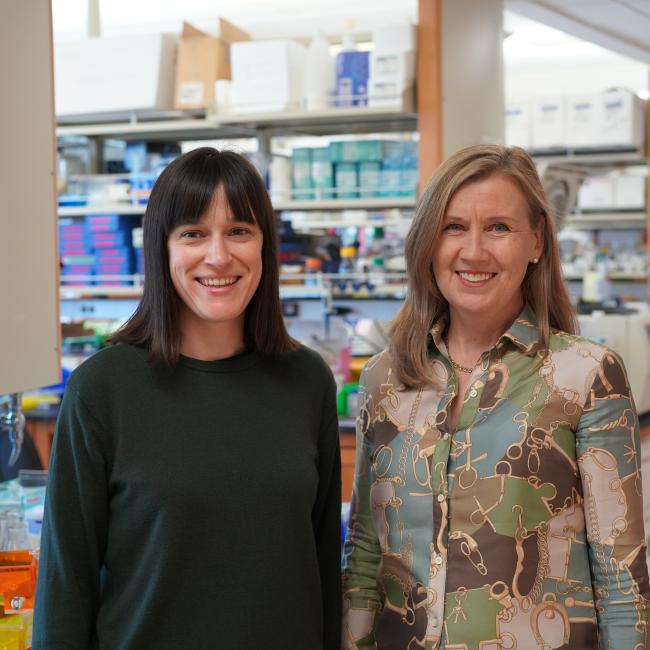 Jun2024
Jun2024UCLA scientists identify a protein that not only enables blood stem cells to self-renew in a lab dish, but also allows these expanded cells to function effectively after being transplanted into mouse models.
-
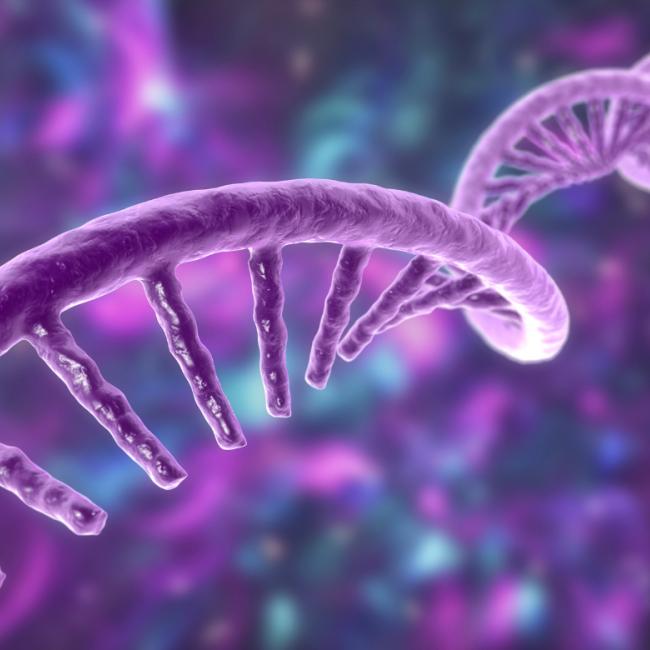 May2024
May2024Scientists uncover over 200,000 new gene transcripts in the developing human brain. Their findings could help us better diagnose and treat neuropsychiatric disorders.
-
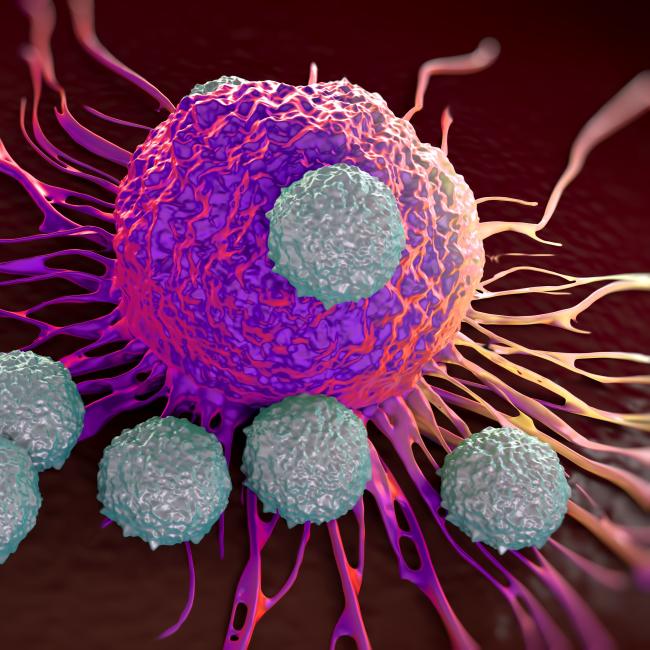 Mar2024
Mar2024A UCLA study conducted in mice suggests that genetically engineered dendritic cells can slow down lung cancer tumor growth and enhance the power of immunotherapy.
-
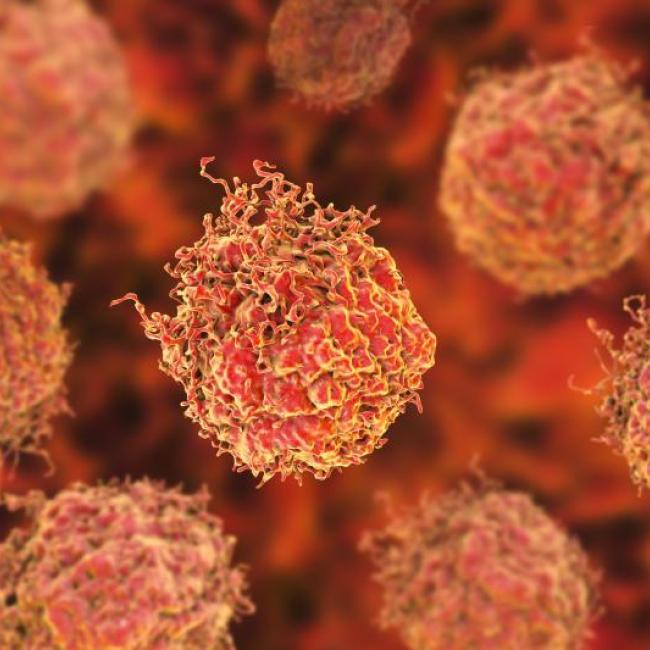 Dec2023
Dec2023UCLA studies lay the groundwork for the development of improved therapies for treatment-resistant prostate cancers.
-
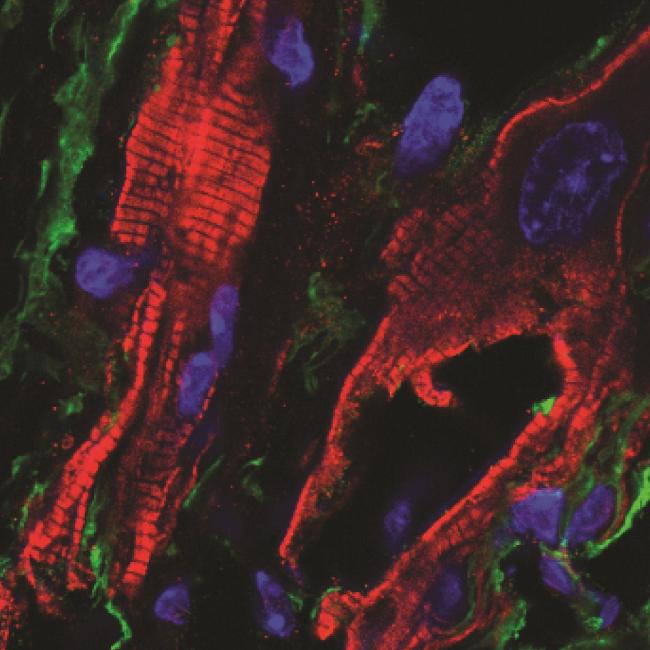 Sep2023
Sep2023A UCLA-led team uncovers clues about the origin of heart arrhythmias, which could lead to new treatment strategies for these life-threatening rhythm problems of the heart.
-
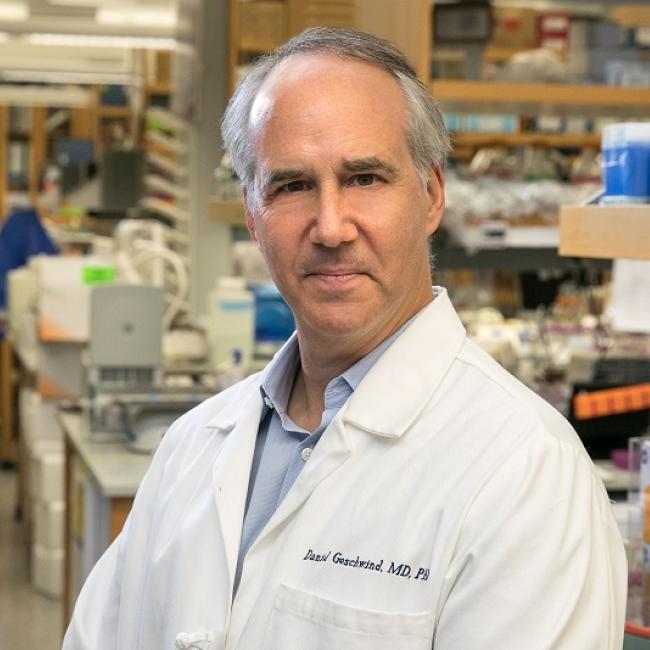 Jul2023
Jul2023UCLA scientists identify new genes that are associated with an increased risk of autism through the largest study of families with multiple children with this condition to date.
-
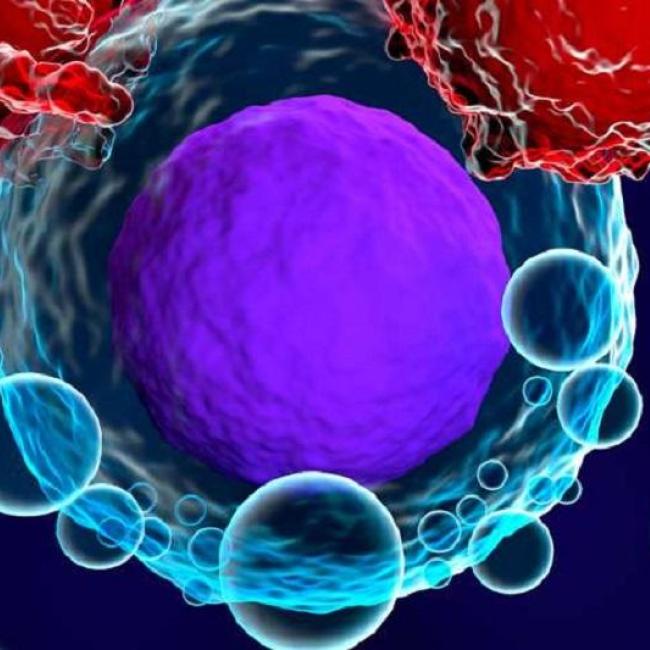 May2023
May2023Ten of 11 lymphoma patients treated during a UCLA clinical trial respond to a "bispecific" CAR T-cell therapy that helps to minimize treatment resistance and disease relapse. One patient, Hirotaka Matsunaga, remains in remission nearly two years after treatment.
-
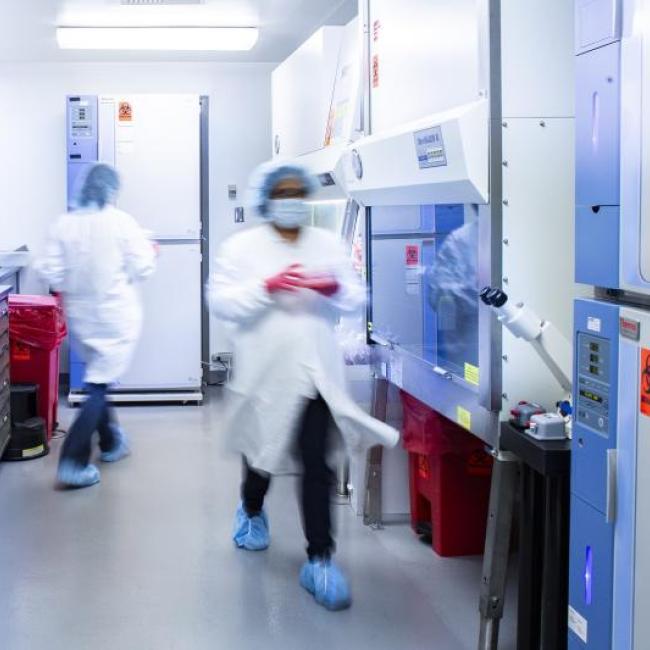 May2023
May2023UCLA is positioned to expand its capacity to manufacture products for a wide range of cell and gene therapy clinical trials thanks to a CIRM grant.
-
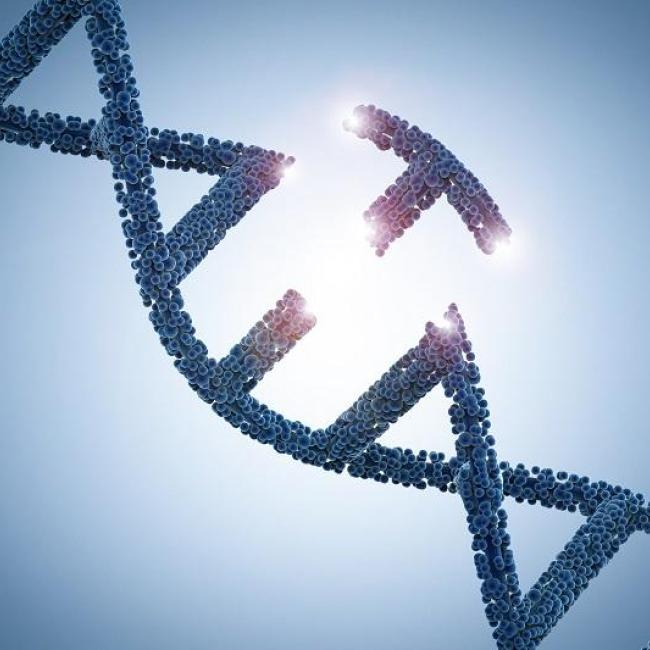 Mar2023
Mar2023Center researchers use an ultraprecise form of genome editing to correct the mutation that causes the rare and deadly immune system deficiency CD3 delta SCID.
-
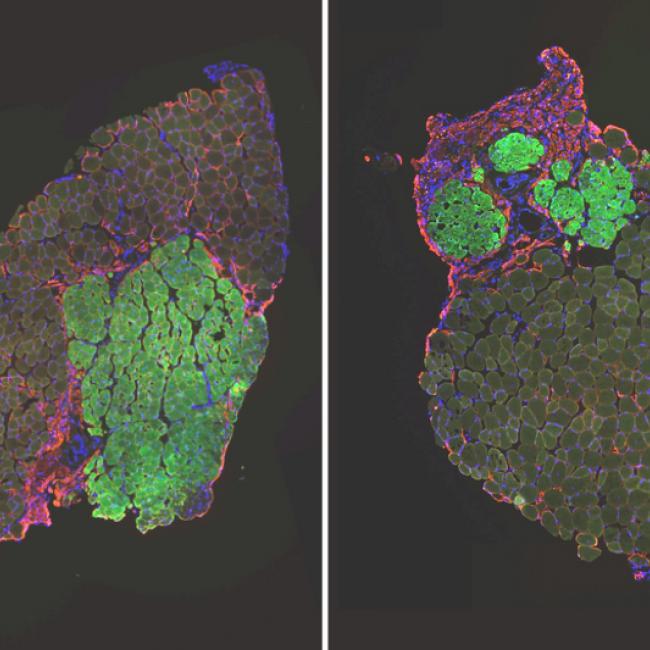 Feb2023
Feb2023Scientists identify a method to rejuvenate old stem cells in a preclinical study that could pave the way for methods to improve our bodies' ability to recover from injury as we age.
-
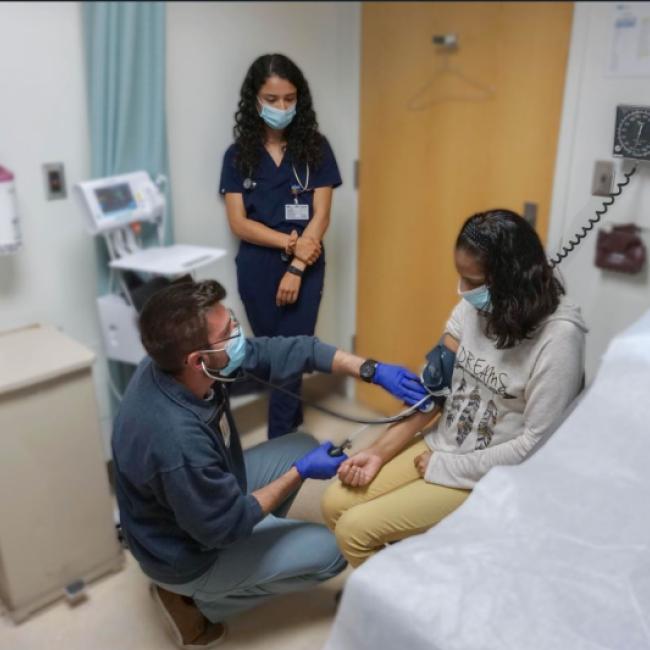 Oct2022
Oct2022The UCLA Alpha Stem Cell Clinic is positioned to expand patients' access to innovative stem cell and gene therapy clinical trials thanks to a CIRM grant.
-
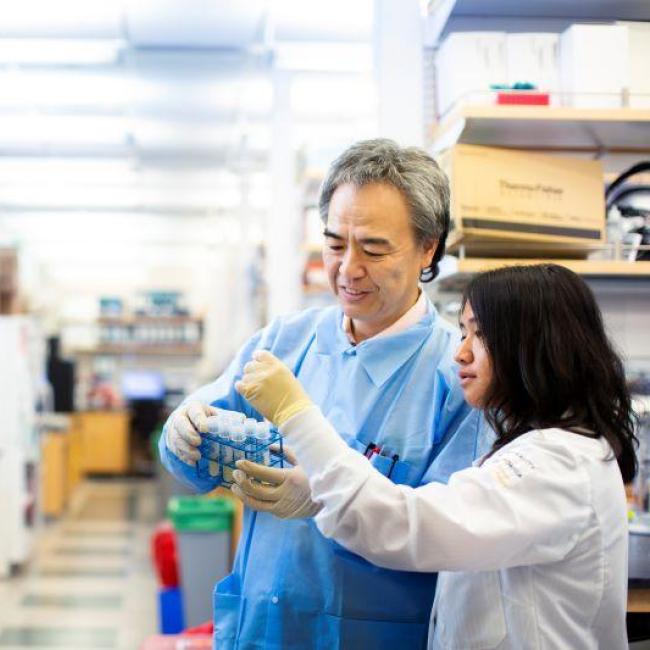 Aug2022
Aug2022UCLA launches the COMPASS Program, a stem cell training program for undergraduate students, thanks to a grant from CIRM.
-
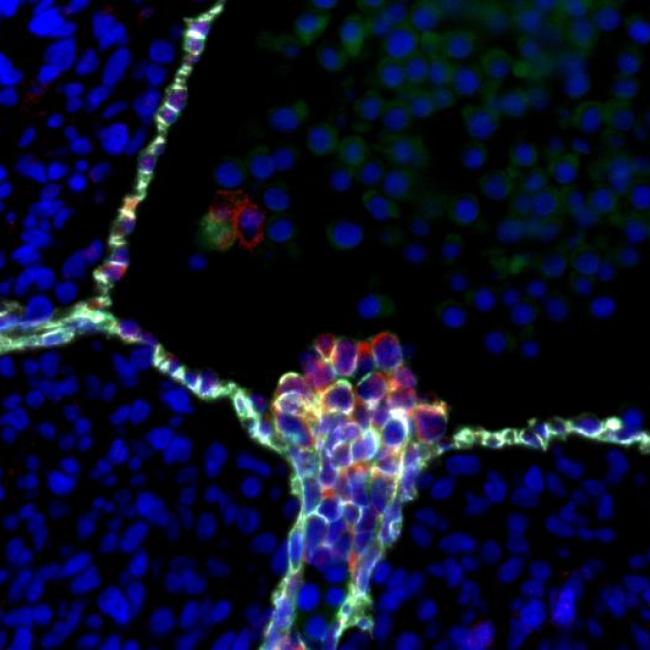 Apr2022
Apr2022A UCLA-led team creates the first comprehensive map of human blood stem cell development — giving scientists a blueprint for producing fully functional blood stem cells in the lab.
-
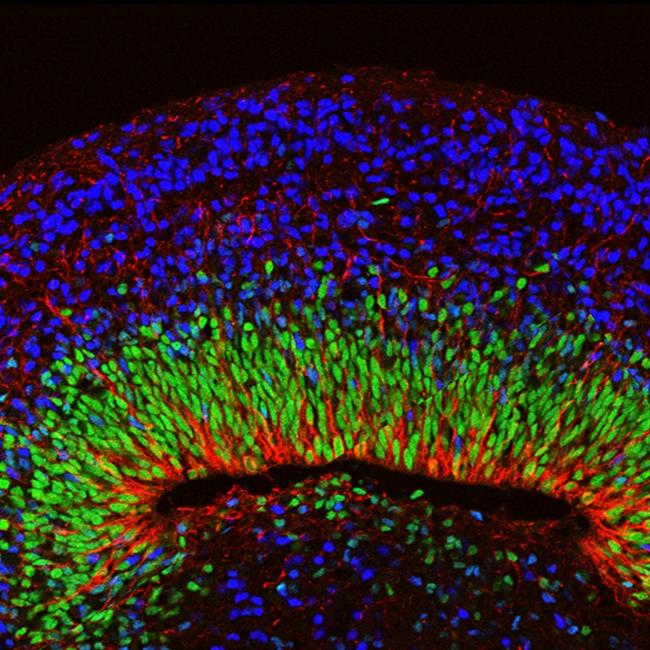 Aug2021
Aug2021Scientists develop brain organoids with complex neural activity that can accurately replicate certain aspects of human brain function and disease.
-
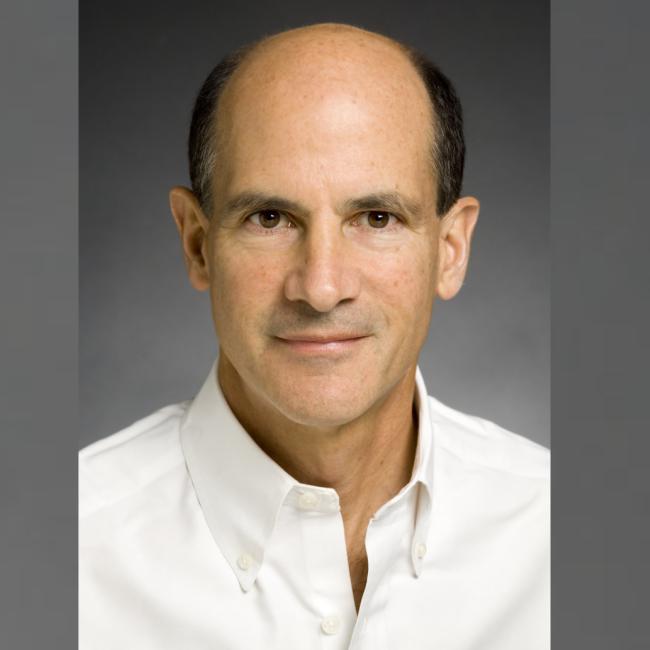 Jul2021
Jul2021Renowned neurologist and stem cell biologist Dr. Thomas Rando is named director of the UCLA Broad Stem Cell Research Center.
-
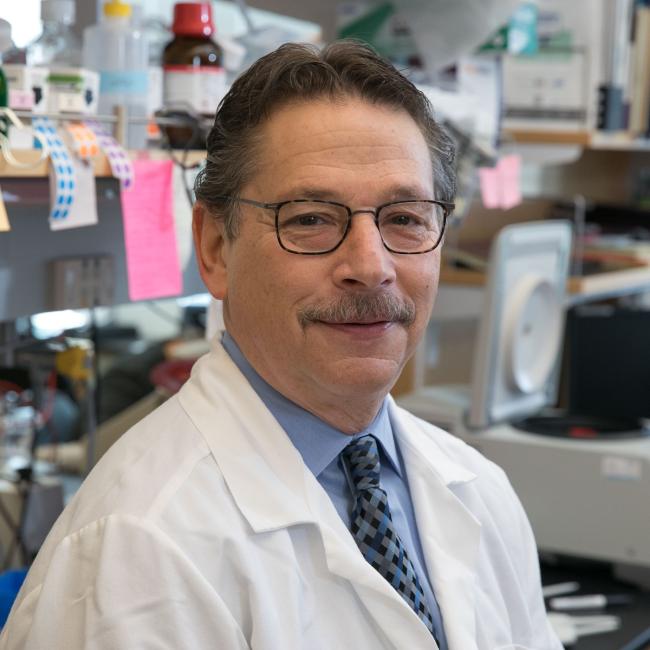 May2021
May2021New England Journal of Medicine study: 48 out of 50 babies have been cured in clinical trials testing a stem cell gene therapy for ADA-SCID developed by Dr. Donald Kohn.
-
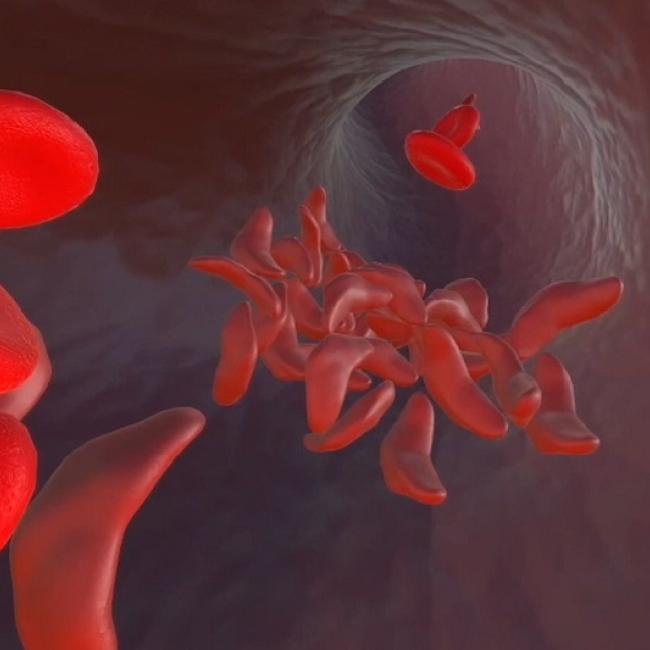 Mar2021
Mar2021A UC group launches a clinical trial using CRISPR to correct the genetic mutation that causes sickle cell disease.
-
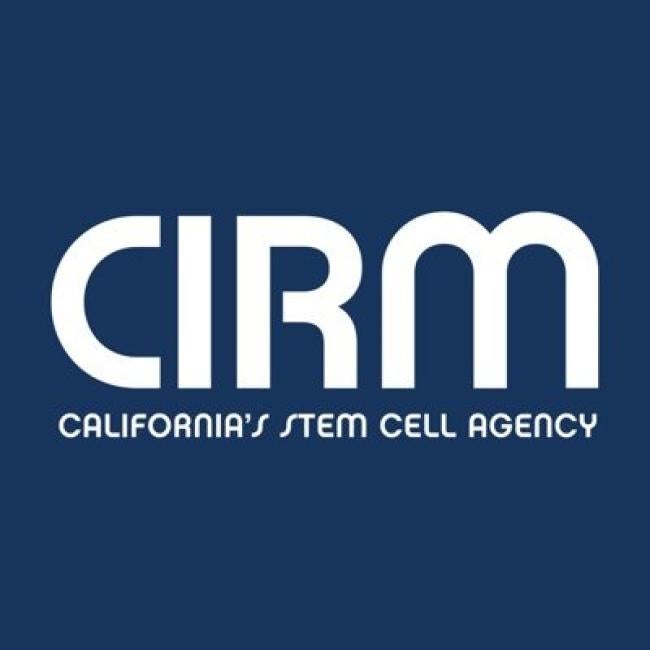 Nov2020
Nov2020California voters approve Prop 14, authorizing $5.5B in new funding for stem cell research.
-
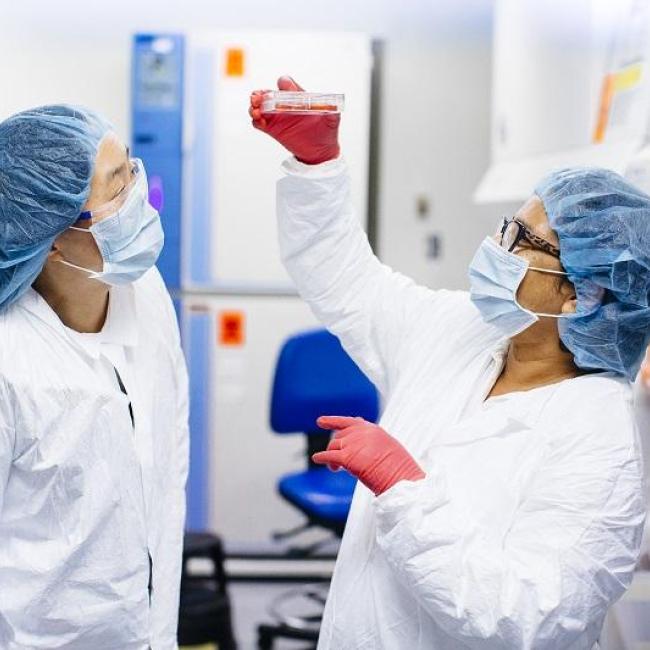 Aug2020
Aug2020Thanks to support from CIRM, center researchers apply their stem cell expertise to study and develop treatments for COVID-19.
-
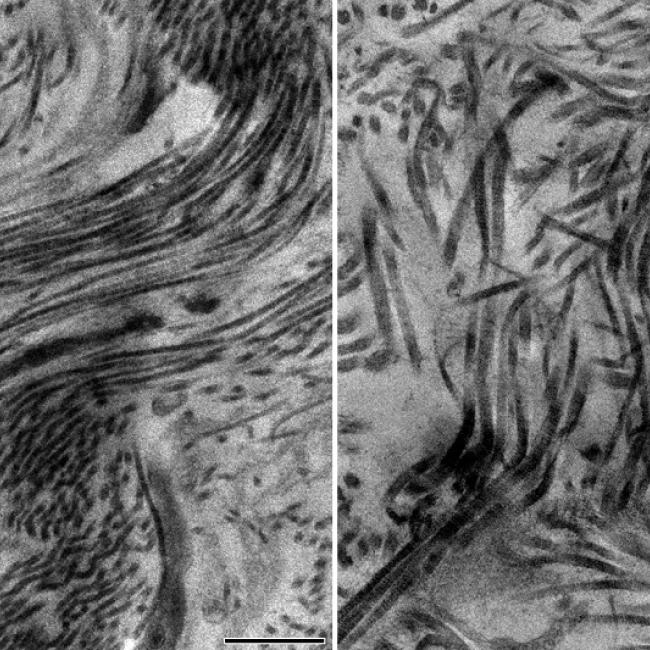 Jul2020
Jul2020A UCLA study conducted in mice could explain why some people suffer more extensive scarring than others after a heart attack.
-
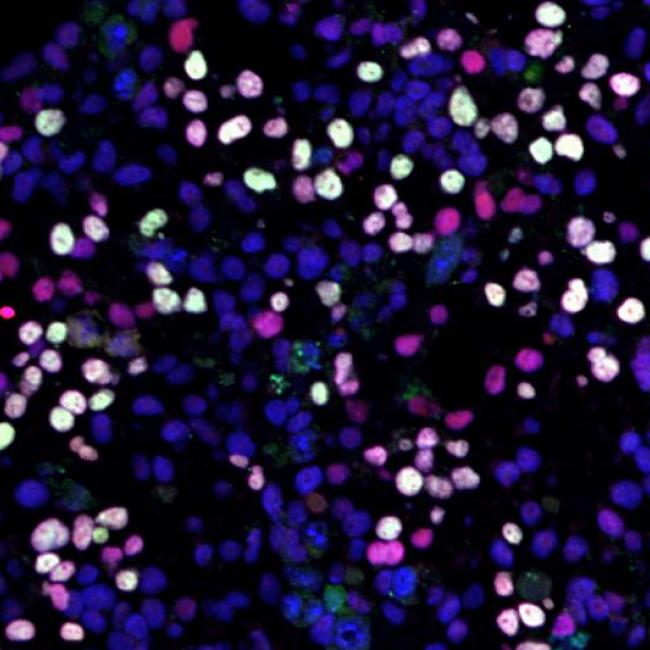 Feb2020
Feb2020UCLA research could be a step toward lab-grown eggs and sperm to treat infertility.
-
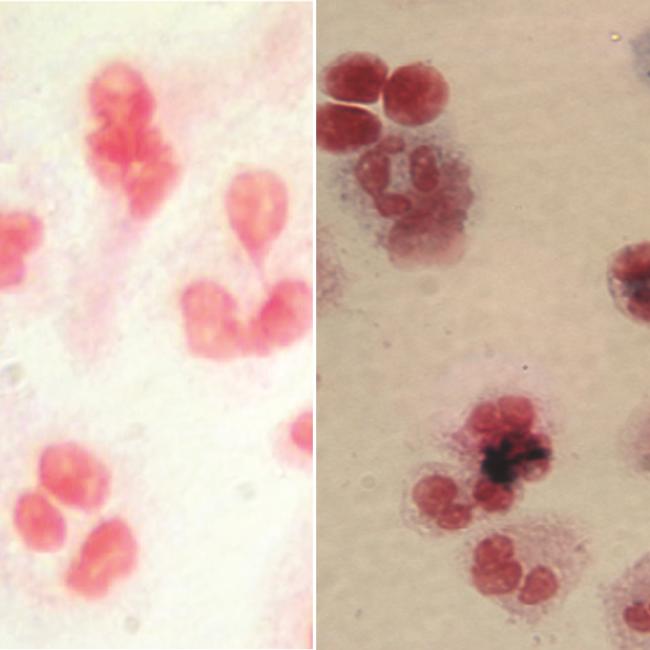 Jan2020
Jan2020Six patients with rare blood disease known as X-CGD are doing well after receiving a blood stem cell gene therapy in a clinical trial.
-
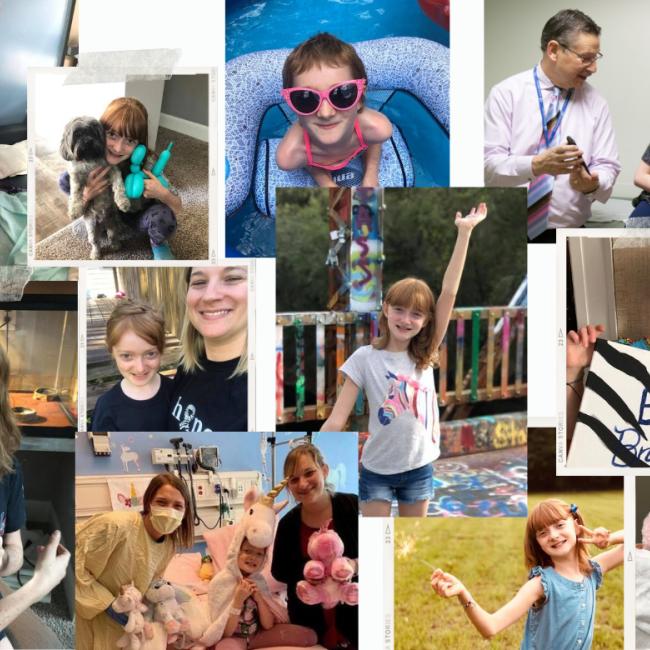 Oct2019
Oct2019Dr. Donald Kohn and Rocket Pharma initiate a clinical trial of a blood stem cell gene therapy for immune deficiency LAD-I. Patient Marley Gaskins, the first child to receive the innovative therapy, remains healthy and disease-free five years after treatment.
-
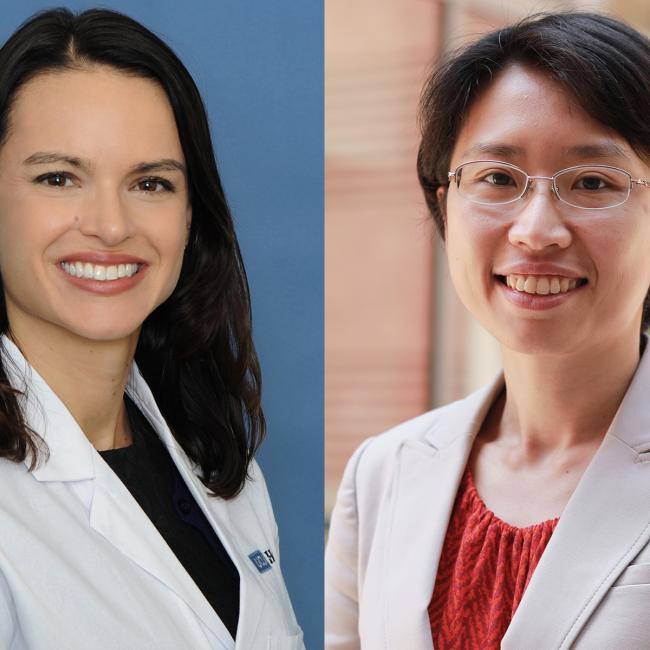 Oct2019
Oct2019Drs. Yvonne Chen and Sarah Larson launch a groundbreaking CAR-T cell immunotherapy clinical trial that is aimed at extending the lives of patients diagnosed with lymphoma and leukemia.
-
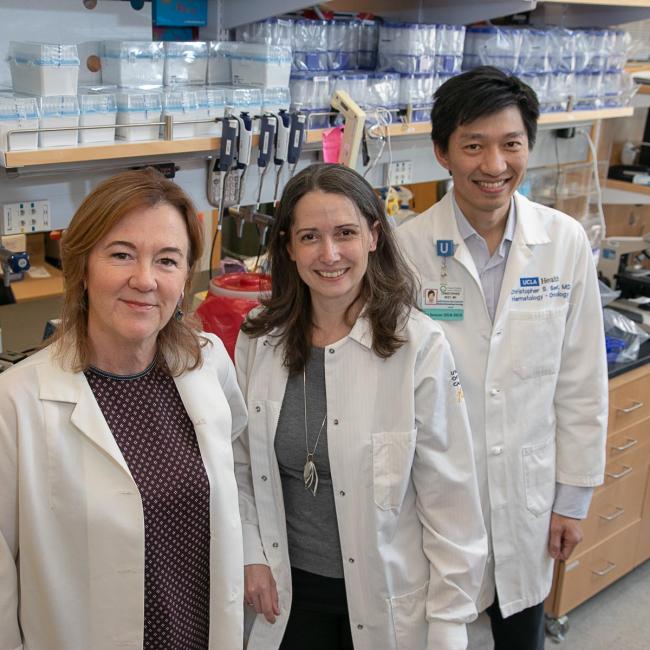 Jan2019
Jan2019An artificial thymic organoid platform developed by UCLA scientists creates a renewable source of cancer-fighting T cells.
-
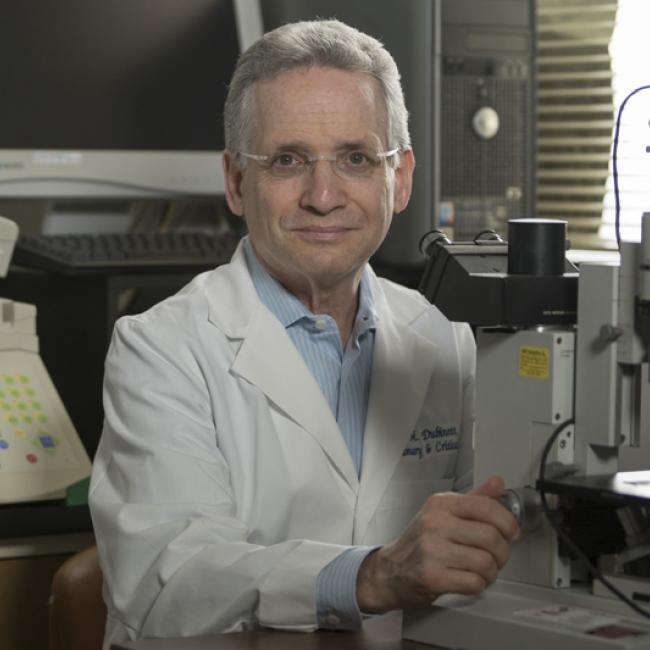 May2018
May2018Dr. Steven Dubinett begins a clinical trial combining immunotherapy drug and cell therapy for late-stage lung cancer.
-
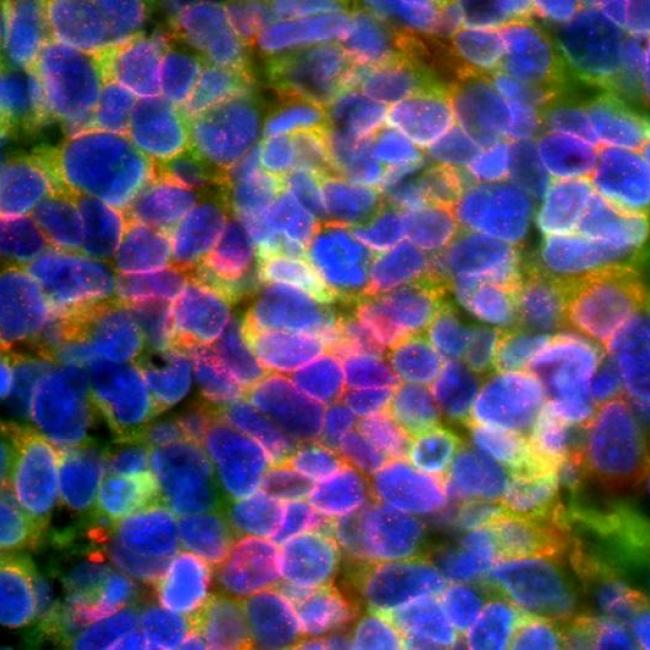 Oct2018
Oct2018UCLA researchers discover aggressive prostate and lung cancers are driven by common mechanisms.
-
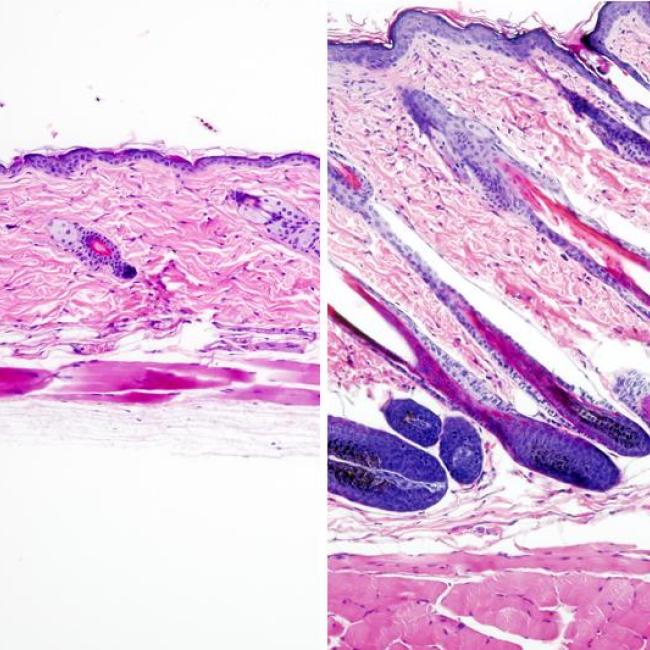 Aug2017
Aug2017UCLA scientists identify a new way to activate stem cells to make hair grow in a preclinical study.
-
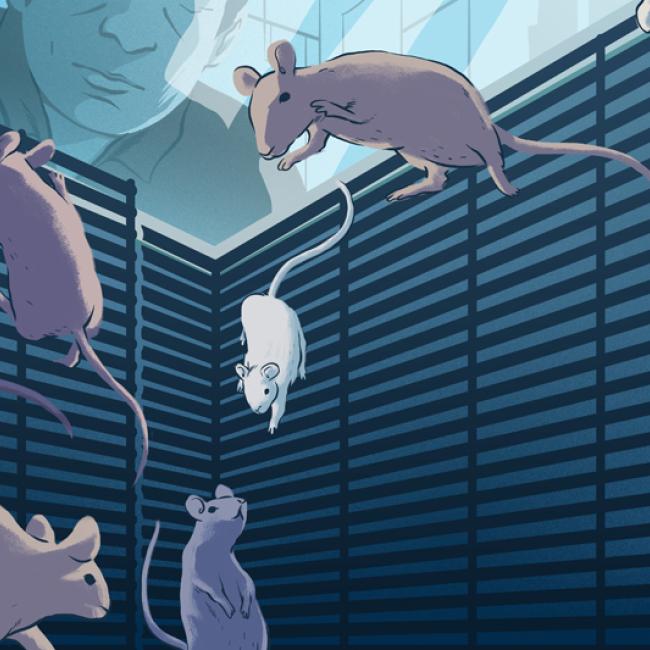 Jun2017
Jun2017Mice head for International Space Station to test a bone-building drug developed at UCLA.
-
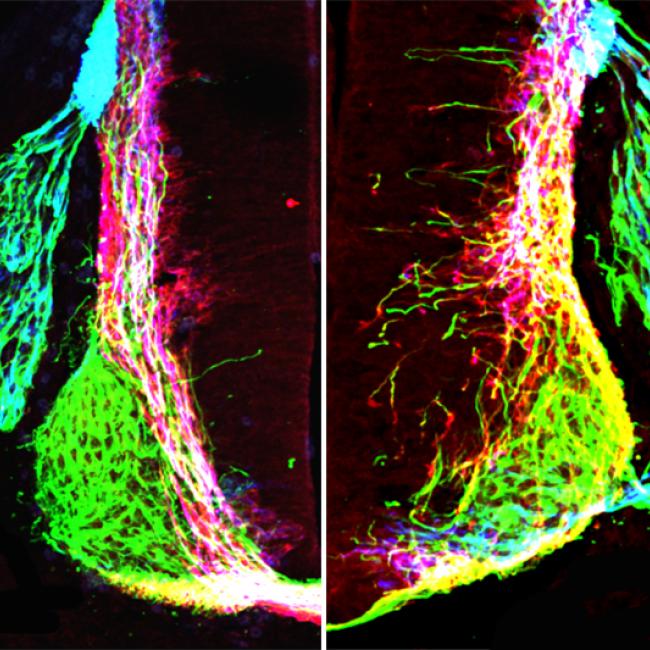 Apr2017
Apr2017UCLA study overturns seminal research about the developing nervous system.
-
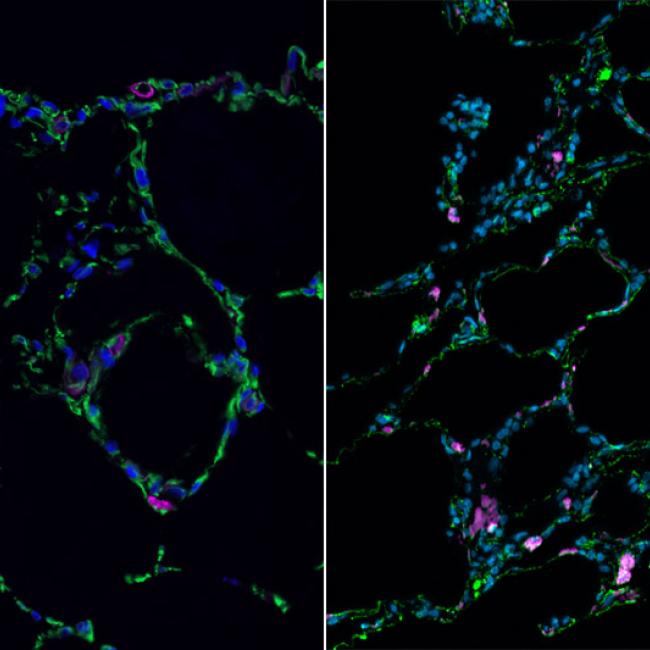 Sep2016
Sep2016UCLA researchers use stem cells to grow mini 3D lung organoids, which enable the study of lung diseases that have been traditionally difficult to model.
-
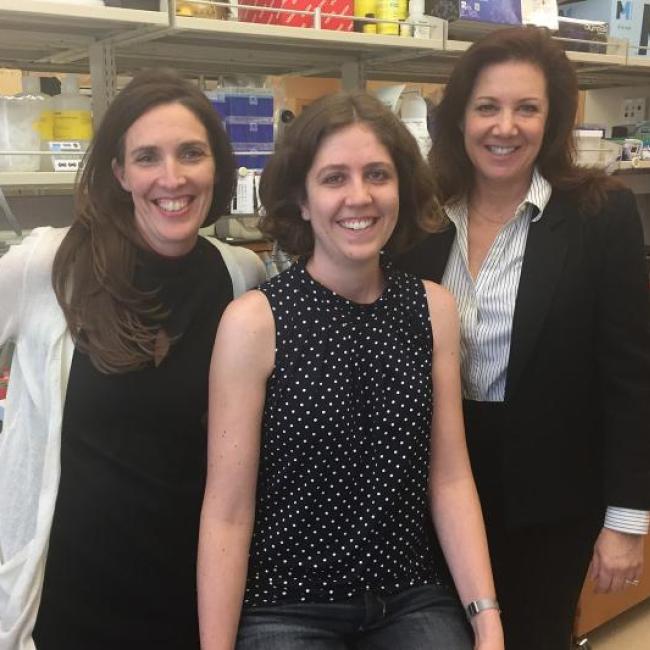 Feb2016
Feb2016UCLA scientists develop a CRISPR/Cas9-based stem cell gene therapy that could be key to treating Duchenne muscular dystrophy.
-
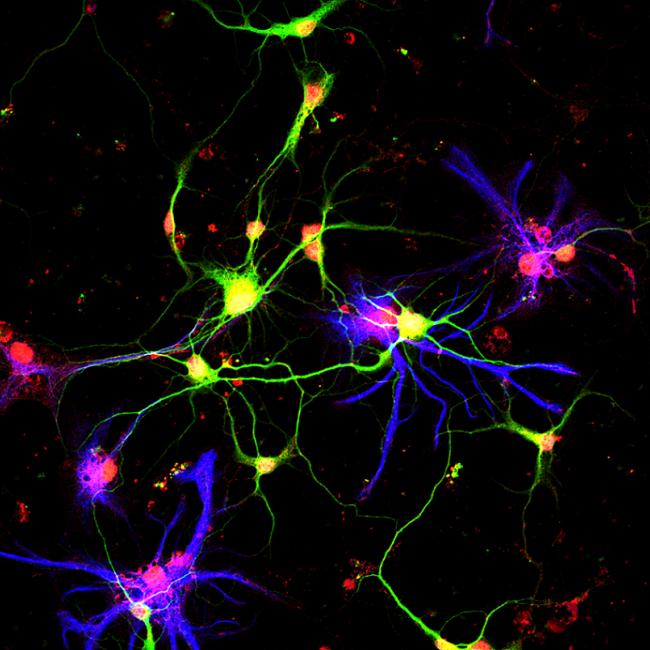 Oct2015
Oct2015Researchers identify a molecule that prompts brain tissue to form new connections after a stroke.
-
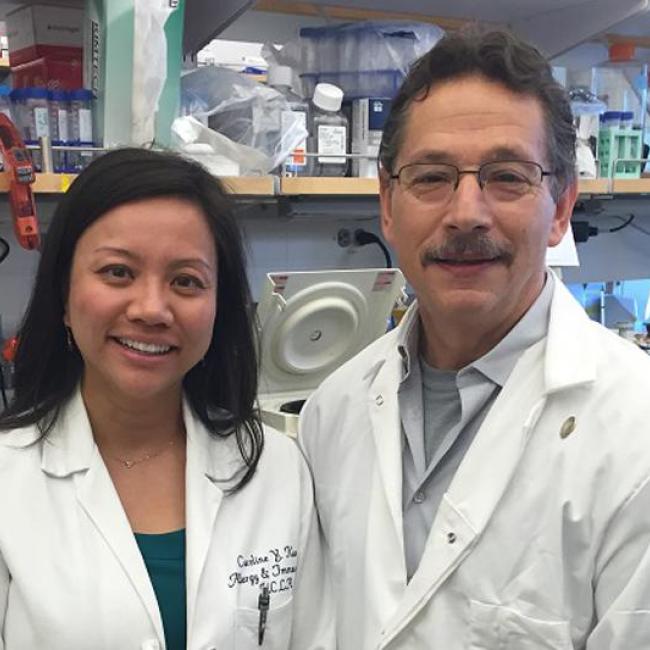 Jul2015
Jul2015Drs. Caroline Kuo and Donald Kohn launch a stem cell gene therapy clinical trial for immune deficiency X-CGD.
-
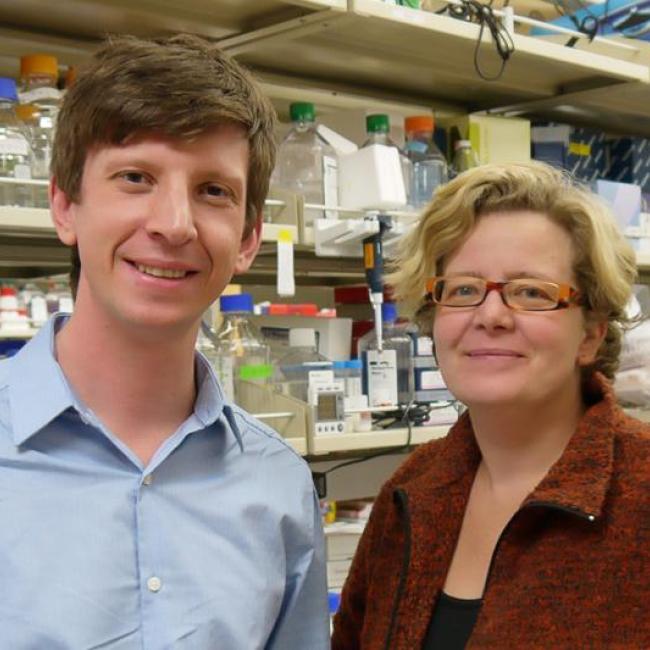 Jan2015
Jan2015Scientists develop a pioneering method to define stages of stem cell reprogramming.
-
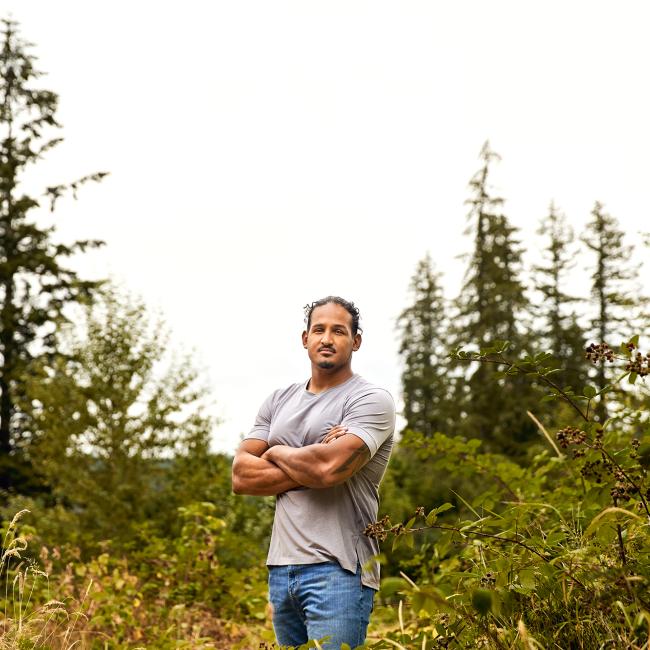 2014
2014Drs. Gary Schiller and Donald Kohn initiate a clinical trial of stem cell gene therapy for sickle cell disease. Patient Evie Junior has not experienced a pain crisis, a major symptom of the disease, since receiving the experimental treatment in 2020.
-
 Oct2014
Oct2014UCLA-UCI Alpha Stem Cell Clinic is founded thanks to a CIRM grant to accelerate the launch of clinical trials and delivery of stem cell therapies.
-
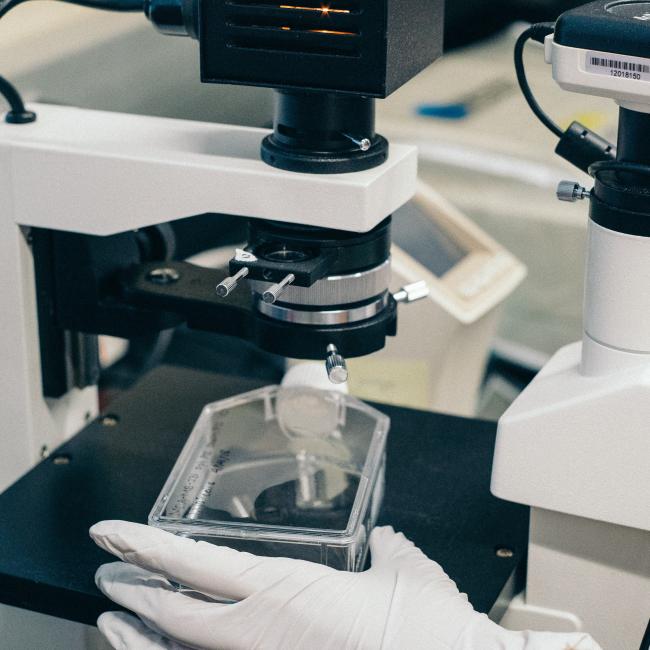 Oct2014
Oct2014The discovery of a repair process that occurs in mice after heart attack suggests a potential new treatment strategy.
-
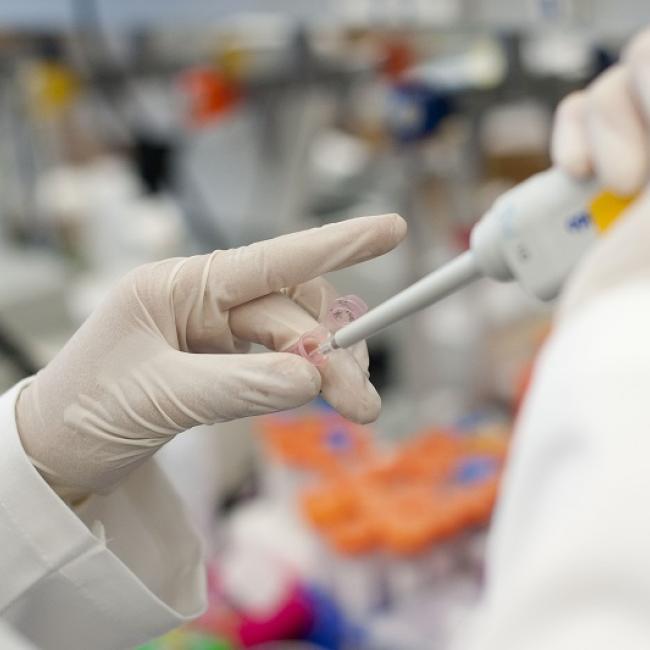 Apr2012
Apr2012A center researcher presents a roadmap to help researchers overcome the regulatory and legal challenges associated with bringing stem cell therapies to patients.
-
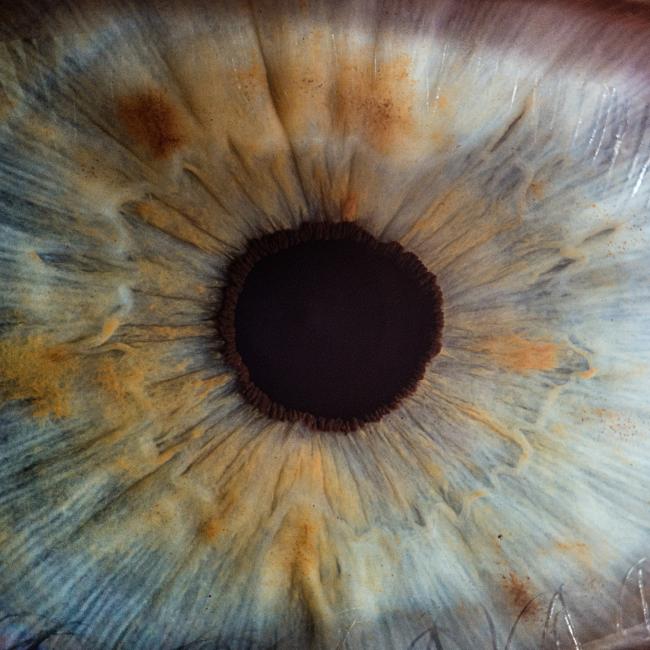 Jun2011
Jun2011Dr. Steven Schwartz and Astellas Pharma launch stem cell clinical trials for forms of the blinding eye diseases macular degeneration and macular dystrophy.
-
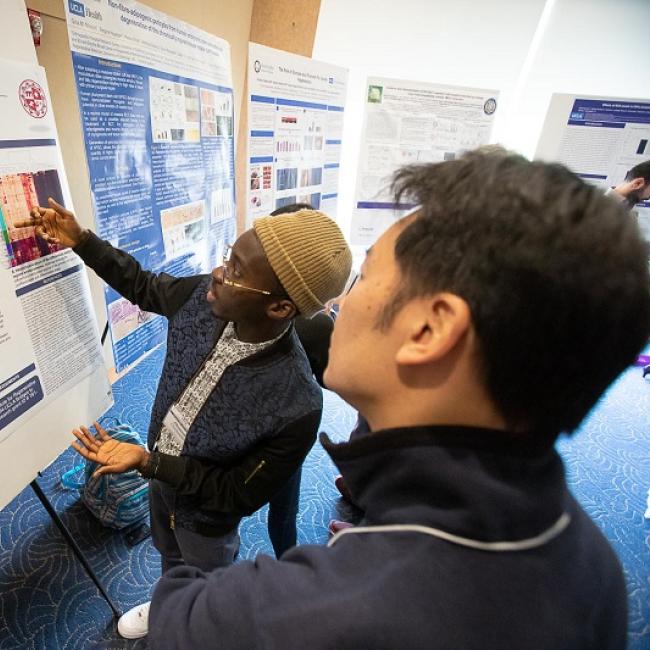 Sep2010
Sep2010Our center launches a CIRM-funded training program that provides Cal State Northridge students with paid internships in UCLA research labs.
-
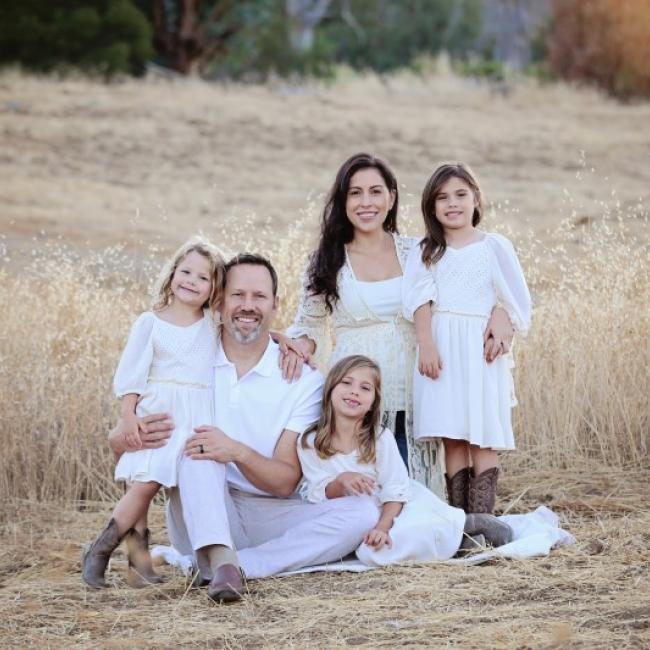 2009
2009Dr. Donald Kohn begins a UCLA clinical trial of a stem cell gene therapy for the immune deficiency ADA-SCID. Patient Evangelina Vaccaro, who received the treatment in 2012, has remained healthy ever since.
-
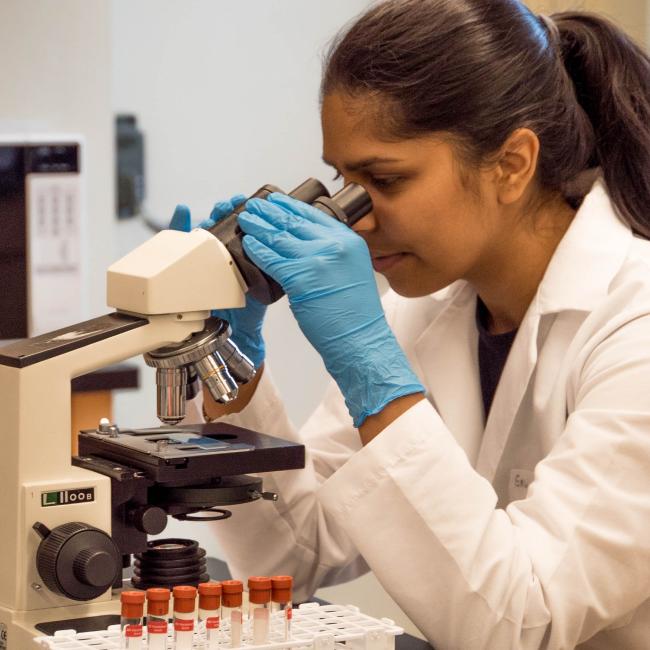 Feb2008
Feb2008Center researchers become the first group in California to create induced pluripotent stem cells.
-
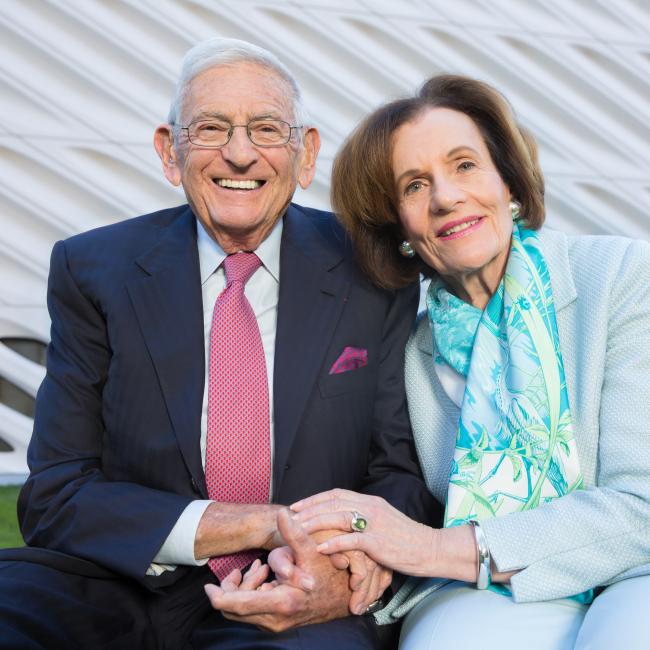 Sep2007
Sep2007The Broad Foundation donates $20M and the Institute is renamed the Eli and Edythe Broad Center of Regenerative Medicine and Stem Cell Research at UCLA.
-
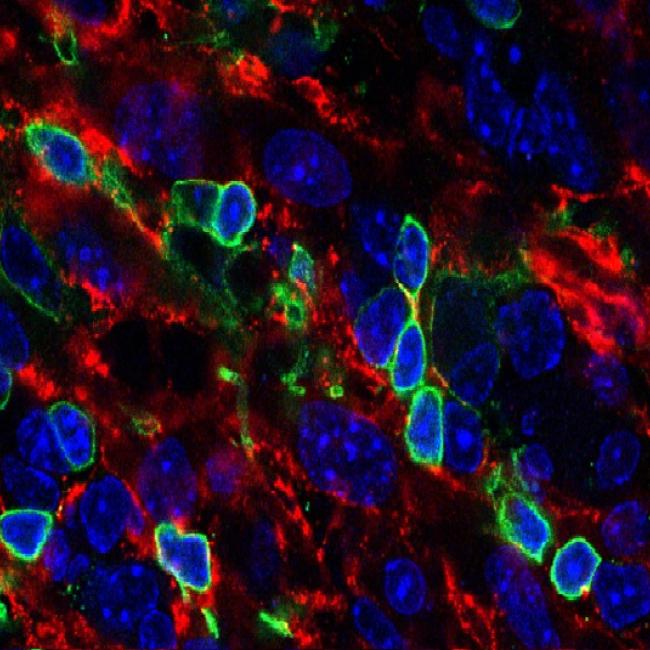 Jul2006
Jul2006UCLA stem cell researchers develop a method to produce T cells from human embryonic stem cells, raising hopes for a gene therapy to combat AIDS.
-
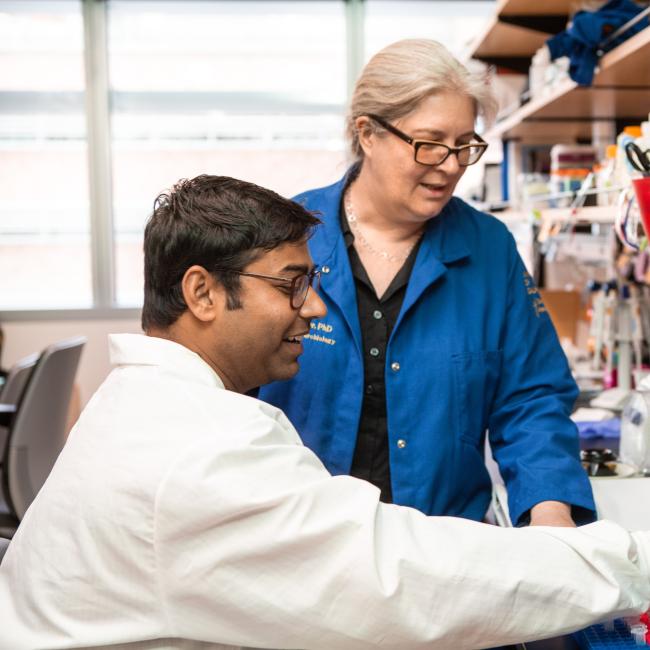 Sep2005
Sep2005The Institute for Stem Cell Biology and Medicine launches the Stem Cell Training Program for graduate students, post-doctoral scholars and clinical fellows thanks to a CIRM grant.
-
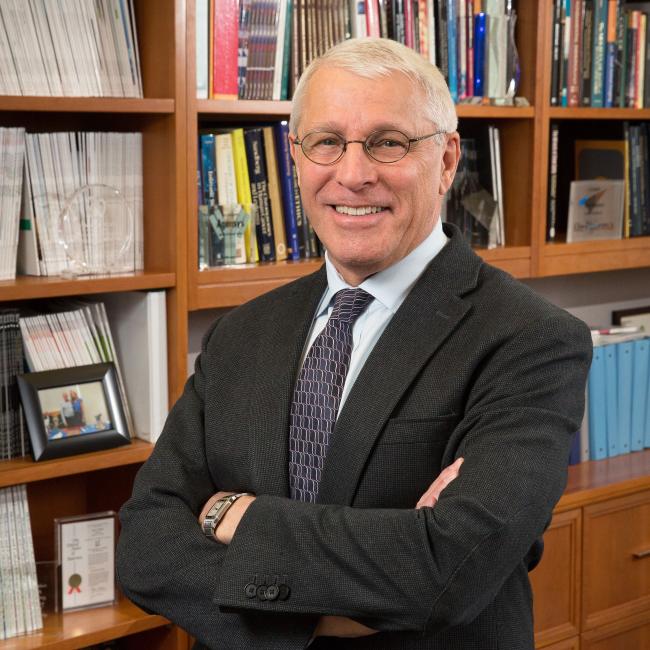 Mar2005
Mar2005UCLA launches the Institute for Stem Cell Biology and Medicine, now the Eli and Edythe Broad Center of Regenerative Medicine and Stem Cell Research, under Founding Director Dr. Owen Witte.
-
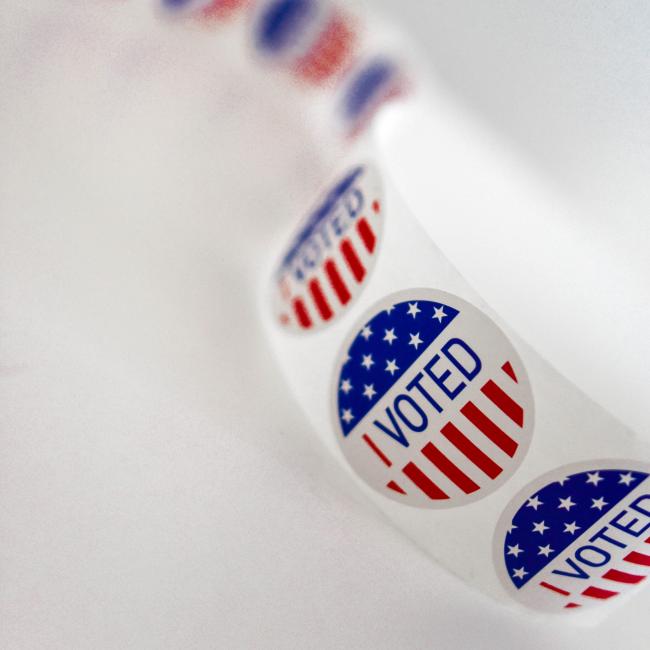 2004
2004California voters approve Prop 71, authorizing $3B in stem cell research funding and creating the California Institute for Regenerative Medicine (CIRM).
